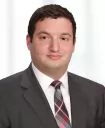On June 29, 2021, the Supreme Court issued a decision in Minerva Surgical, Inc. v. Hologic, Inc., affirming the viability of the doctrine of assignor estoppel, with significant limits. The Court explained that assignor estoppel only applies where there is a contradiction between representations, including an implied warranty of validity, made during the assignment and the arguments made in the invalidity defense. This specific requirement of a contradiction significantly narrowed the applicability of the doctrine.
In narrowing the defense, the Court identified three examples of situations where assignor estoppel may not apply because there would be no contradiction made by the inventor:
- Assignor estoppel may not apply where the assignment occurs before any invention is created, for example where an employment contract assigns an employee's future inventions before they have been invented or patented.
- Assignor estoppel may not apply where there has been a change in governing law that renders the representation regarding validity irrelevant.
- Assignor estoppel may not apply when there is a change in patent claims after the assignment is made that resulted in a change in claim scope, because the change in claim scope may render any representation irrelevant to the issued claims.
Following this case, companies seeking to invoke assignor estoppel during litigation should carefully review the patent assignments and prosecution history to determine whether assignor estoppel will still be a viable defense. In particular, employment agreements made when an employee is hired, well before a patent application is filed, may not result in assignor estoppel. Employers who are concerned about being able to invoke assignor estoppel should consider whether there should be any additional assignment agreements made following issuance of the patent in order to supersede any earlier agreement, such as an employment contract.
The content of this article is intended to provide a general guide to the subject matter. Specialist advice should be sought about your specific circumstances.


